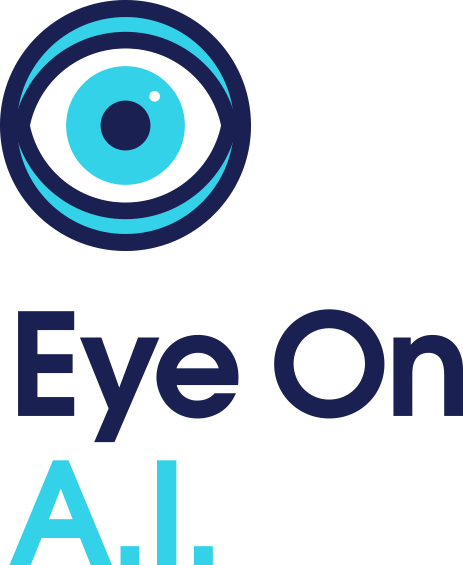Week Ending 10.10.2021
RESEARCH WATCH: 10.10.2021
This week was active for "Computer Science", with 1,408 new papers.
The paper discussed most in the news over the past week was "Universal Payment Channels: An Interoperability Platform for Digital Currencies" by Mihai Christodorescu et al (Sep 2021), which was referenced 19 times, including in the article Twitter to support NFTs, Visa developing cross-chain CBDC protocol in Bitcoin Exchange Guide. The paper author, Cuy Sheffield, was quoted saying "This is a much longer-term future thinking concept around a way that Visa could potentially help become a bridge between one digital currency on one blockchain and another digital currency on another blockchain".
Leading researcher Yoshua Bengio (Université de Montréal) came out with "Unifying Likelihood-free Inference with Black-box Sequence Design and Beyond".
This week was extremely active for "Computer Science - Artificial Intelligence", with 265 new papers.
The paper discussed most in the news over the past week was by a team at Google: "Do Vision Transformers See Like Convolutional Neural Networks?" by Maithra Raghu et al (Aug 2021), which was referenced 4 times, including in the article Akira’s Machine Learning news — #issue 30 in Medium.com.
Leading researcher Yoshua Bengio (Université de Montréal) published "Unifying Likelihood-free Inference with Black-box Sequence Design and Beyond".
This week was very active for "Computer Science - Computer Vision and Pattern Recognition", with 311 new papers.
The paper discussed most in the news over the past week was "A Pathology Deep Learning System Capable of Triage of Melanoma Specimens Utilizing Dermatopathologist Consensus as Ground Truth" by Sivaramakrishnan Sankarapandian et al (Sep 2021), which was referenced 13 times, including in the article Proscia Announces Artificial Intelligence Breakthrough in Melanoma Detection in Yahoo! Finance. The paper author, Kiran Motaparthi (Director of Dermatopathology and Clinical Associate Professor of Dermatology at the University of Florida), was quoted saying "The performance of Proscia’s technology in detecting melanoma and other malignant skin diseases is impressive".
Leading researcher Yoshua Bengio (Université de Montréal) published "ClimateGAN: Raising Climate Change Awareness by Generating Images of Floods".
Over the past week, 24 new papers were published in "Computer Science - Computers and Society".
The paper discussed most in the news over the past week was by a team at University of Oxford: "Are iPhones Really Better for Privacy? Comparative Study of iOS and Android Apps" by Konrad Kollnig et al (Sep 2021), which was referenced 4 times, including in the article Apps On Apple iPhone Track You As Much As Android Apps, Oxford Study Reveals in Indiatimes.
Leading researcher Yoshua Bengio (Université de Montréal) came out with "ClimateGAN: Raising Climate Change Awareness by Generating Images of Floods".
This week was very active for "Computer Science - Human-Computer Interaction", with 44 new papers.
The paper discussed most in the news over the past week was "MedKnowts: Unified Documentation and Information Retrieval for Electronic Health Records" by Luke Murray et al (Sep 2021), which was referenced 11 times, including in the article AI Improves Electronic Health Record (EHR) Systems in Psychology Today. The paper author, David Karger, was quoted saying "In the origins of EHRs, there was this tremendous enthusiasm that getting all this information organized would be helpful to be able to track billing records, report statistics to the government, and provide data for scientific research. But few stopped to ask the deep questions around whether they would be of use for the clinician. I think a lot of clinicians feel they have had this burden of EHRs put on them for the benefit of bureaucracies and scientists and accountants. We came into this project asking how EHRs might actually benefit clinicians".
This week was extremely active for "Computer Science - Learning", with 595 new papers.
The paper discussed most in the news over the past week was by a team at IBM: "Quantum Machine Learning for Finance" by Marco Pistoia et al (Sep 2021), which was referenced 19 times, including in the article JPMorgan's guide to quantum machine learning in finance in EFinancialCareers.
Leading researcher Yoshua Bengio (Université de Montréal) came out with "Unifying Likelihood-free Inference with Black-box Sequence Design and Beyond".
Over the past week, 13 new papers were published in "Computer Science - Multiagent Systems".
Over the past week, 25 new papers were published in "Computer Science - Neural and Evolutionary Computing".
The paper discussed most in the news over the past week was by a team at DeepMind: "Faster Improvement Rate Population Based Training" by Valentin Dalibard et al (Sep 2021), which was referenced 1 time, including in the article DeepMind’s FIRE PBT: Automated Hyperparameter Tuning With Faster Model Training and Better Final Performance in SyncedReview.com.
This week was very active for "Computer Science - Robotics", with 94 new papers.
The paper discussed most in the news over the past week was "Robots Inner Speech Effects on Trust and Anthropomorphic Cues in Human-Robot Cooperation" by Arianna Pipitone et al (Sep 2021), which was referenced 2 times, including in the article Study explores how a robot's inner speech affects a human user's trust in Tech Xplore. The paper author, Arianna Pipitone et al, was quoted saying "We now want to complete the experimental session by involving a large number of participants, to validate our initial results".
Leading researcher Ruslan Salakhutdinov (Carnegie Mellon University) published "Mismatched No More: Joint Model-Policy Optimization for Model-Based RL".

